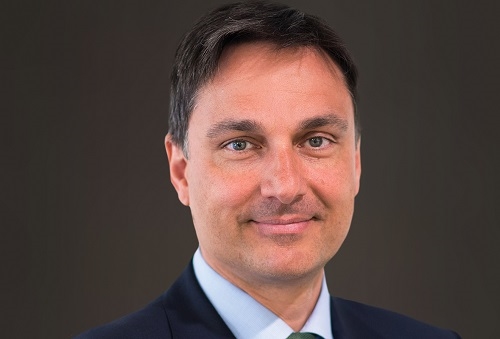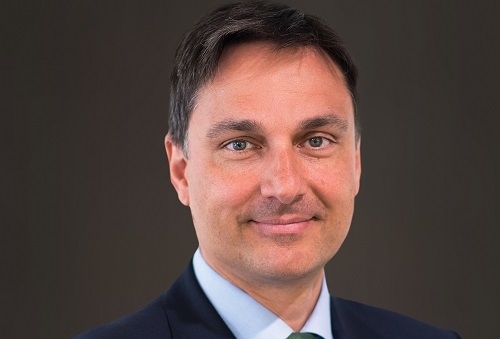Poacher turned gamekeeper: bfinance CEO David Vafai

How is bfinance positioned in the market?
We flip the traditional model on its head. We see ourselves as an extension of strong internal teams, so we don’t tell people what to do or hold our own buy-list of the best managers. Sophisticated investors typically know what they want and we help them find them whatever that is.
Our people are fund management practitioners, and that’s very important. In most consulting firms the people have essentially always been consultants – our guys have often invested within institutional investors, asset owners or asset managers.
They’ve made money, lost money and been through market cycles. Here, they sit on the same side of the table as the investor – but having been on the other side they’re able to ask the right questions.
The FCA is investigating practices in the pension fund consulting market. How do you view the typical consultant-asset owner relationship?
The consulting landscape has changed massively over the last few years. Over the last 15 years consultants have increasingly been taking on outsourced- CIO work, what used to be called implemented consulting or fiduciary management, so they are directly managing money.
Some consultants are not really that interested in consulting anymore. The discretionary advisory model may work for smaller institutional investors but larger clients typically don’t want their consultant pushing products. It’s an obvious issue for them, so we come in whenever the consultant needs to recuse themselves. That dynamic is working in our favour.
For regulatory reasons, UK pension funds need a retained adviser. We are very rarely a retained adviser – we live and die by the quality of each individual project. We work alongside consultants to fulfil a specific requirement, where the client feels we have more experience and are less conflicted.
Sometimes we are asked to review the consultant’s funds. I’m not saying all consultants love us and are super-keen to get us involved.
What do you look for in an asset manager?
For each asset class our practitioners take a different approach, perhaps 80% are similar questions and 20% are bespoke to the mandate.
At the end of the day it’s about experience, track record, team, process, incentivisation and operational risk. But depending on the client and asset class there will be other considerations – you’re not going to be looking at the same thing if you’re looking at a highly-liquid strategy in the alternative risk premia area versus let’s say a private credit mandate closed-end fund.
Where are you seeing growth in investor demand?
Over the last few years we’ve really seen a pretty big shift in the alternatives area, so we created a pretty strong team in what we call the diversifying strategies area – hedge funds, liquid alternatives, alternative risk premia and multi-strategy – that doesn’t fit into either public or private markets.
Are you working on any particularly unusual mandates?
Right now we’re working on an agri-timber mandate and an aircraft leasing mandate. Recently we worked on a shipping mandate and a life settlements mandate, so it’s pretty varied.
We can put together project teams in areas where clients just don’t have the internal resources. But we also do a lot of plain vanilla mandates.
When the universe is 400 managers and you want to follow the best process governance, to prove to your board that you’ve scoured the market, you still need to go through a thorough process.
There is constant pressure on asset management fees – where do you think they are headed?
In the hedge fund area, in some of the more liquid and less capacity-restraint strategies there has been a lot of fee pressure. You get pressure where lots of funds focus on similar strategies that deliver similar outcomes, such as the various alternative risk premium strategies.
Some strategies have been tremendously successful and this has introduced competition and applied pressure on fees across the board. But there are some other strategies that are more capacity-constrained where the fees just aren’t coming down that much.
Likewise, fixed income allocations are being increasingly channelled into less liquid private debt/private credit strategies. The number of managers has just shot through the roof compared to three or four years ago, so there is additional fee pressure there as well.
Even though the private credit mandates are cheaper than they were five years ago, they’ve become more mainstream and are still more expensive than the things they’re replacing in portfolios.
Should investors be focusing so much on fees?
I would say it’s a value for money thing, it should not really be about fees. If you’ve got a poor manager, it doesn't matter what they’re charging you, whatever it is, it’s still too much.
In our experience, there isn’t a huge correlation between how good the managers are and how much they’re charging. You have to identify which managers have the highest chance of performing well and then worry about fees, or try to negotiate the fees.
Will hedge funds and private equity funds be able to maintain their fees in the future?
When private equity started it was 2 and 20 because managers had $100m funds and they needed that money to survive. Those same funds now have $50bn and they’re still earning 2 and 20. I don’t know if it still makes sense.
The market is willing in some instances, for the big reputation managers, to pay those kinds of fees. The top hedge funds managers are still commanding very high fees, and in fact a lot of the active managers even in the long-only space are still commanding very high fees.
You could make a moral argument that people are making too much money, no matter how much they deliver. But that’s a moral argument, not an economic one. There are people that have the skill to deliver great net-of-fee risk-adjusted returns. It is possible to find those managers.
How is it possible that a lot of money still flows into essentially index- tracking funds?
There’s a lot of marketing money that cause people to invest with managers that aren’t necessarily adding tons of value.
Clearly, some managers are making too much money. But I wouldn’t make a blanket statement that certain types of manager are overpaid.
Some managers have very consistent track records over many years and actually add a ton of value net of fees for a decent level of risk.
How concerned are you about the market conditions?
You can demonstrate that volatility is extremely low, perhaps a quarter of historic volatility. So there is definitely something to be worried about, but I would say that actually there are also lots of opportunities.
There has been a number of ‘catastrophic’ events over the last couple of years that haven’t actually turned out to be that catastrophic, on the contrary they have turned out to be real investment opportunities.
Investors are way more diversified and the number of options has increased – in the past it was hard to access some real assets, for example, but that has improved a lot. Maybe that’s a rose-tinted view, but I’m not overly concerned.
|
bfinance is an institutional investment consulting firm focused on fund manager selection, founded in 1999 in a management buyout. With London operating as its hub, it now has offices in six locations and set to open offices in Toronto and Chicago before the end of the year. It has clients in 33 countries across Europe, Canada, Asia Pacific and the Middle East. The firm works for pension funds, insurance companies, sovereign wealth funds, family offices, foundations and endowments. Client AuM averages of €11bn and range between €0.5bn to €500bn. In February 2016 Baird Capital Partners invested in bfinance, which provided capital for expansion in the US and Australia. Bfinance grew revenue by 30%+ year-on-year to June 2017. |
Found this useful?
Take a complimentary trial of the FOW Marketing Intelligence Platform – the comprehensive source of news and analysis across the buy- and sell- side.
Gain access to:
- A single source of in-depth news, insight and analysis across Asset Management, Securities Finance, Custody, Fund Services and Derivatives
- Our interactive database, optimized to enable you to summarise data and build graphs outlining market activity
- Exclusive whitepapers, supplements and industry analysis curated and published by Futures & Options World
- Breaking news, daily and weekly alerts on the markets most relevant to you



